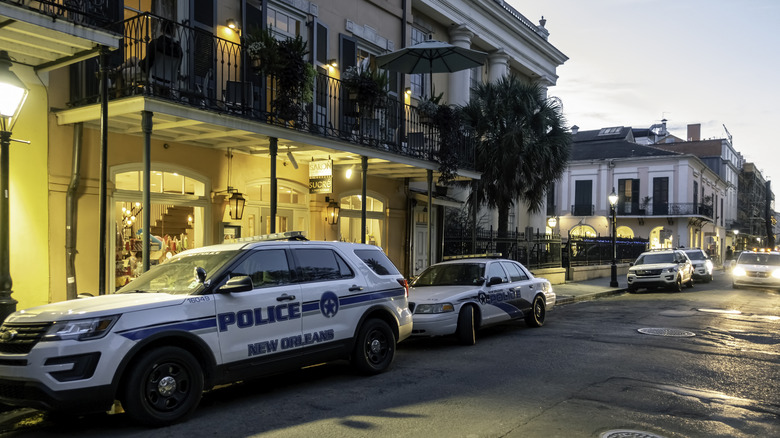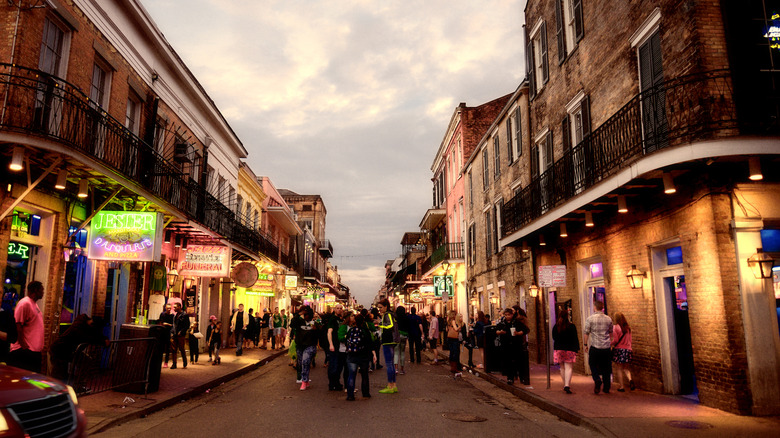Let’s be honest: Spring break has a rowdy reputation no matter where you are. That week off from classes, when winter is finally over but it’s not yet time for summer break, tends to attract legions of college students and young partiers looking for the perfect combination of sunshine and nightlife. Unfortunately, spring break trips can sometimes involve scary run-ins with crime and other safety threats.
In fact, a study by AirportParkingReservations.com discovered that the most popular spring break destination in the U.S. is also the least safe. New Orleans, Louisiana, came in first place on a list of the top cities to visit for spring break, according to online searches and social media data. It far outperformed the second-place destination, Punta Cana, Dominican Republic, in terms of searches: More than 930,000 searches were made about New Orleans between January and May, while nearly 530,000 were made about Punta Cana.
Despite its popularity with spring breakers, New Orleans might not be the most comfortable place to be when the sun goes down. The New York Post reported that the same study named New Orleans the most dangerous city at night. Safer alternatives include Puerto Vallarta, Mexico (the destination with the safest daytime and nighttime scores); Key West, Florida; and San Diego, California.
Crime rates are high in New Orleans

Another spring break study by Innerbody Research painted a similar picture of New Orleans, placing The Big Easy in second place in a list of the most dangerous spring break hotspots (nearby Baton Rouge came in first). It determined that New Orleans was the worst city for drug overdoses and one of the worst for cases of sexually transmitted diseases (including chlamydia and gonorrhea).
However, unrestrained hedonism isn’t the only reason that the Louisiana city would be considered dangerous. According to ABC News, New Orleans became the murder capital of the U.S. in 2022, though the number of homicides in the city fell 25% by 2023. Still, violent crime continues to be a problem. Data from Niche.com, which compares cities across the country, shows that New Orleans’ murder rate per 100,000 residents sits at nearly 72, compared to the national average of 6.1. Moreover, the assault rate is more than three times the national average and robbery is more than two times the average rate in other cities.
Staying safe in New Orleans during spring break

Remember, New Orleans is the most popular spring break spot in the U.S., even if it does come with a few risks. The historic French Quarter is bursting with life (and is one of the most likely places to spot celebrities in New Orleans), with its live music, buzzy drinking establishments, and streets that look unlike any other in the country. Across the city, there are also festivals and parties galore — just the thing many students crave after months of writing papers and studying for tests. And sure, New Orleans might not have world-class beaches, but it makes up for it with its riverboats and party cruises.
With so much to do, the city can still be a fantastic spring break destination, even if safety is a concern. Police are known to patrol busy areas, and public safety rangers are also placed in high-traffic neighborhoods to help prevent and report crime. Additionally, it’s worth noting that much of the violence that occurs in the city happens outside the tourist areas.
Regardless of where you spend your spring break vacation, a few common-sense strategies can help you stay safe. Stay in a group when possible to avoid being an easy target for thieves and other criminals. Be mindful of how much you drink, and don’t accept drinks or other substances from strangers. And as always, if something feels off, err on the side of caution and follow your gut.

